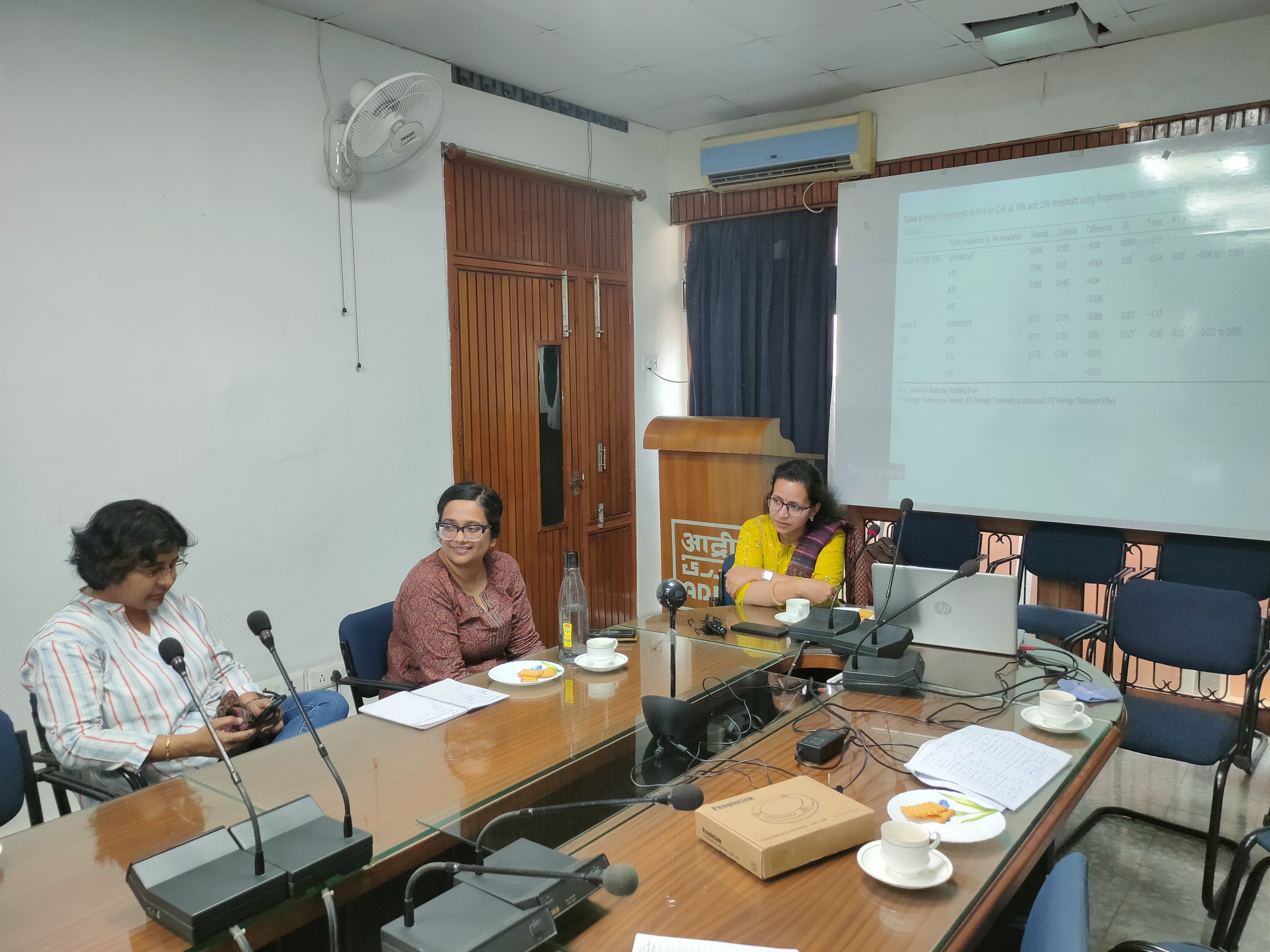Events of ADRI Patna

Speaker : Dr Priyanka Dixit, Assistant Professor, School of Health Systems Studies , TISS
Patna. March 15. The Asian Development Research Institute (ADRI) organised a talk titled Effectiveness of Government Strategies for Financial Protection against Costs of Hospitalization Care in India by Dr. Priyanka Dixit, Assistant Professor at the School of Health Systems at Tata Institute of Social Sciences, Mumbai.
Dr. Dixit’s study investigated whether the Public-Funded Health Insurance (PFHI) schemes that have been spawned since 2005 have effectively reduced the people’s out-of-pocket expenditure. The study’s conclusions are based on the 71st round of the National Sample Survey Organisation (NSSO) data. It has been found that more than 50 per cent of the urban populace not insured under government schemes prefer to visit private hospitals for treatment. For the rural populace, the corresponding figure is similar. And 84 percent people do not have any kind of health insurance.
With respect to the efficacy of these public health insurance schemes, the study has found no positive impact on the poor sections of society. Dr. Dixit said that existing models of PFHIs in India demonstrate limited effectiveness in providing financial protection, particularly for hospitalization, despite attempts to expand coverage. PFHI coverage tends to benefit wealthier people more than the poorer populations, indicating design flaws and exclusions.
Dr. Dixit asserted that subsidized care from public hospitals in India is more effective in reducing financial burden compared to private providers. This holds true even without public-funded health insurance (PFHI) coverage. She further emphasized the need for strengthening public provisions alongside public health insurance schemes.
Earlier, Dr. Ashmita Gupta, Member-Secretary of ADRI introduced the learned Professor. Numerous academicians, public health experts and researchers attended the talk in person as well as virtually.